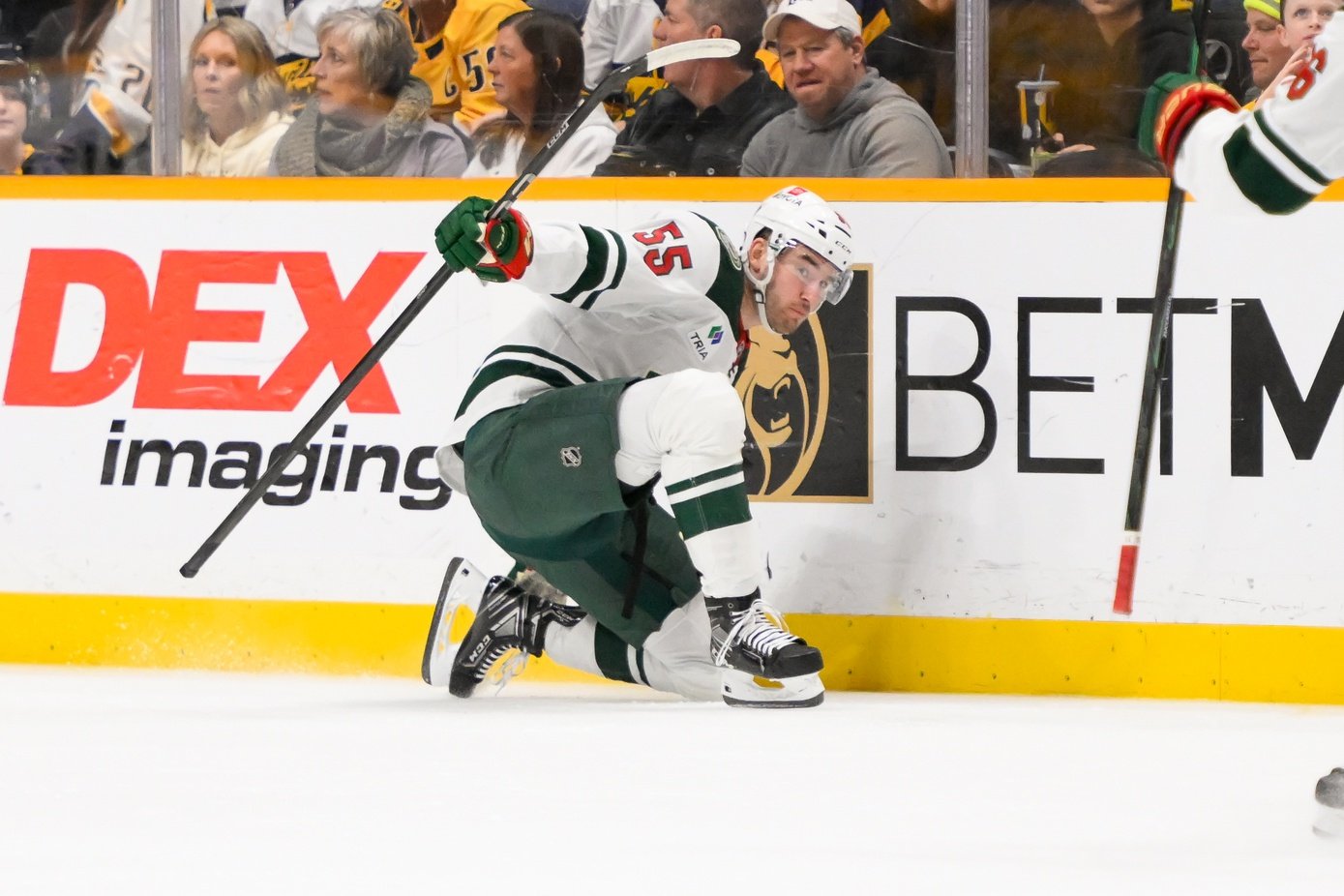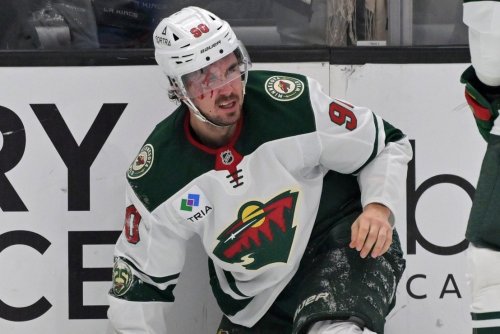
When the Minnesota Wild traded for David Jiricek on November 30, they did so partly because the price was right. They got a blue-chip defense prospect for Daemon Hunt and four draft picks. You can argue the draft capital (a first, second, third, and fourth-round pick, staggered between 2025 and 2027) is a lot, and maybe it is. But Jiriceks don't come onto the market often, and the Wild believed in him, so it was a no-brainer.
Since then, however, the Wild have been hampered not necessarily by the cost of getting Jiricek but arguably by the opportunity cost of making that move. Minnesota was always going to have a tough time at the trade deadline with their salary cap restrictions, but the Jiricek deal cranked up the difficulty. Without their 2025 first-round pick, it was going to be difficult to pry someone like Brock Boeser from the Vancouver Canucks. Instead, the Wild settled for trading their 2026 second-rounder for Gustav Nyquist.
It's safe to say the route the front office chose is going bust, at least for the 2024-25 Wild. Nyquist hasn't brought offense to the Wild, scoring just three points (all assists) in 15 games. Meanwhile, Minnesota hasn't seen much use for Jiricek in the NHL, playing just six games in the NHL and zero since January 20. As of Tuesday, there's a 12% chance that the Wild will have been aggressive buyers this season while missing the playoffs.
Second-guessing the Wild is easy when they're (at best) backing into the playoffs. But Minnesota's mediocrity lately is why the Jiricek trade was such a brilliant maneuver in the first place.
Unlike the Nyquist trade, acquiring Jiricek wasn't a move that would either help Minnesota in 2024-25 or not at all. The use of assets was aggressive, making other moves at the trade deadline difficult. But what kind of deals are we talking about? The opportunity cost for the Wild was almost certainly forgoing short-term player rentals. Instead, the Wild pulled off a forward-thinking swap that should set them up for years.
That's not just a defensible trade; it's exactly what fans should have wanted Minnesota to do. Unless you expect to see the Wild advance to the second round (Moneypuck puts their odds at 18.6%) or further, most fans would probably prefer the team to sell at the deadline or at least not buy. Trading a first-round pick is by definition a "buyer" action, but obtaining a top prospect is the desired outcome of a "seller."
Looking at it through that lens, suddenly, it doesn't matter whether Jiricek was able to make an impact this season. Especially since the Wild were always upfront about this not being a move for this season.
"I think it's gonna take us a little while to get him up to speed here," Guerin said after making the trade. "There's a lot for him to learn."
Scouting director Judd Brackett echoed that sentiment, telling The Athletic, "[He] still has some things to work on, obviously, as he transitions to playing pro hockey in North America.
"But it's really hard to get these types of players."
That last point is especially true with what Minnesota gave up to get Jiricek in the first place. Columbus is slated to take the Wild's pick at 21st overall. A team can get a useful player at that spot, sure -- Columbus did with Yegor Chinakhov in 2020. At the same time, the home run rate isn't great, and this draft is "below average," per Corey Pronman. And the talent thins out fast.
Players can always drop, but here are the NHL comparables for numbers 19 to 23 on Pronman's March rankings -- within two spots of 21st overall: Ryan Hartman, J.T. Compher, Ross Colton, Chris Tanev, and Zach Whitecloud. If those prospects hit those projections, Columbus should get a solid player. But that day may be two-to-three years away, and it may also never arrive.
And if 21st overall is far from a sure bet, what about those second, third, and fourth-round picks? You can find value in those rounds. They will yield role players more often than they'll produce a Jason Robertson, Brayden Point, or Devon Toews. As for Hunt, he has yet to play in the NHL for the Blue Jackets and has just two goals and 13 points in 44 games for the AHL's Cleveland Monsters. Minnesota may have traded him at the peak of his value.
Meanwhile, if Jiricek hits his reasonable upside, the Wild have an impact top-four defenseman on their hands. They may have that as soon as next season. Even with his skating flaws, Jiricek still put up Monstar numbers for the Monsters. Minnesota seems confident working with their skating and strength coaches this summer will unlock the 6-foot-4 blueliner's potential.
Will it? That's ultimately what will vindicate or doom the trade. But that's still a solid, smart bet, even if we await the returns. Focusing on the playoff run, it'd have been better for Minnesota to do some LTIR shenanigans and acquire a big name like Boeser for 25 games.
However, the far wiser move is to focus on building the Wild for their actual competitive window, and that's why the Jiricek trade is still 100% the right call.
Think you could write a story like this? Hockey Wilderness wants you to develop your voice, find an audience, and we'll pay you to do it. Just fill out this form.
-
 4
4
-
 2
2





.thumb.jpg.acd5dedd7251543624c6b47bfa6a1212.jpg)
Recommended Comments
Join the conversation
You can post now and register later. If you have an account, sign in now to post with your account.
Note: Your post will require moderator approval before it will be visible.